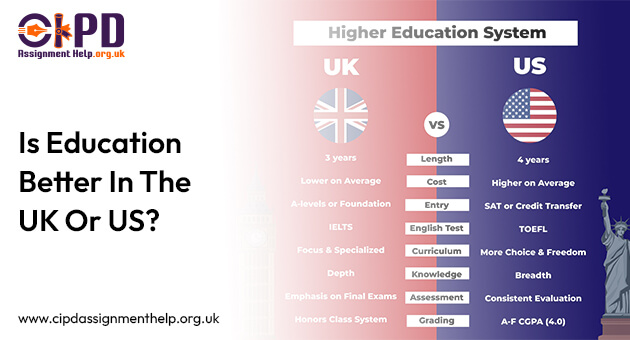Overview:
Education, being the basis of societal advancement, enables people as it provides them with knowledge, skills, and critical thinking powers. Which they can use to develop themselves and as well to contribute to societal growth. In one way or another, education is considered to be the backbone of intellectual development as well as internal training towards the lifelong promotion of the passion for learning in UK.
Besides giving us academic knowledge, it also provides us with life skills. These are as important as communication, adaptability, and problem-solving. And because of these skills, we will be able to meet all the challenges of the modern world.
Education constitutes a principal instrument of top-to-top cooperation. And keeping equality by giving everyone an equal right to education regardless of his or her background.The poor communities will pass on the phases of poverty through generations if the quality education system does not exist.The cycle will be brokenandthe marginalized communities will develop themselves when the education systembecomes well strengthened.
Economic Growth & International Competitiveness
Additionally, promoting education is detrimental to economic development as it fosters inventiveness, innovation, and a know-how-creating labor force. This aids in economic growth and international competitiveness. As a result of fast-paced globalization.
An education system systematically designed would provide an equalopportunityof study for all andwouldmaintain high academic standardswhichwould remain flexible to meet the changes of society.Itmakes a significant contributiontothe jobcooperation among teachers, policymakers, and other influential members in their efforts to achieve high educational results and thereby generate exogenous societal benefits.
The discussion as to whether education quality in the UK is better than it is in the US. Or is the other way around is highly complex and multi-faceted? In this, the UK and the US systems of education differ in certain sectors. There come varying views over which is considered to be “better”.
Educational Structure:
The variety of educational structures introduced in the UK and US is enormous. With one more complex schooling system with primary, secondary, and tertiary levels. In the UK, the main characteristic of the education system is its more centralized technique, where a central curriculum is applied and standardized exams.
The US, however, is a decentralized nation, with a striking level of disparity that is displayed across different states and districts. US education system now predominantly operates on the K-12 model with a high school diploma being the graduation point at the end of compulsory education. And optional post-secondary pursuits at colleges and universities.
Curriculum & Assessment:
The curriculum and the exams in the UK and the US manifest the underlying educational concepts and prioritize different elements. In the UK, there is a see-saw demand for a comprehensive and wide-based curriculum. This gives more weight to the 4 main subjects English, Math, Science, and Humanities.
Standardized tests play a vital part in the measurements of students’ performance and motivate their further development. While in the USA the educational model provides for greater diversity of curricula design. It combines a lot of local governance and tailored learning.
Funding & Resources:
The main source of funding for educational institutes in the UK is a combination of central government grants. And local authority budgets, supplemented by extra funding sources. Like tuition fee payments for higher education. A major part of US education funding comprises resources coming from federal, state, and local levels.
This makes some affluent communities and others with disadvantaged equally contributing to a point of no returns. Students, alumni, and parents are the main recipients of educational subsidies. These subsidies come from both public and private sources, such as self-paying students, charitable trusts, and heritage funds. Get to know in-depth information through CIPD Assignments UK assistance.
Educational Outcomes:
It is a complex subject to compare the level of educational outcomes of the UK and the US. Caused by different ways assessment methods, curricular aspiration, and social background factors. Nevertheless, worldwide student evaluations like the Assessment of Competence of International Students (PISA) can give some attention to student performance. Furthermore, these countries experience challenges when it comes to deciding on academic achievements, social equality. As well as a good quality of learning areas.
Cultural Considerations:
The UK places utmost value on academic perfectionism, tradition, and social academics. In the United States of America, the individualist, diverse, and innovative culture is what largely determines how education discourse prevails. The US higher education system has gained worldwide recognition for the diversity of higher education institutions, among these Ivies Leagues, liberal arts colleges. And also large public research universities.
Conclusion:
To sum up, it is what one considers to be the higher level of education in the UK or the US that is quite subjective and dependent on specific scenarios. Both the systems of the two countries have their strong and weak sides that are formed by the society and economy of the country, by its cultural heritage and history. The performance of educational indicators in these two countries also varies at a nuanced level resulting in differences in student performance and attainment.
Instead of searching for a final and clear solution to this issue, it is more productive to accept the fact that educators around the world have unique educational experiences and focus on making improvements and on equal educational systems everywhere.

